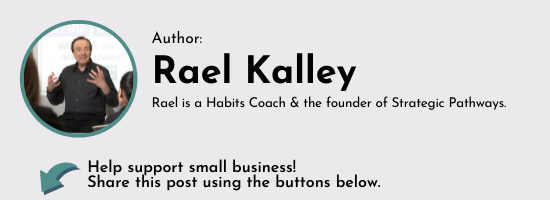Always Do More Than You Get Paid For
A recent conversation with a long-time client – a successful business owner – validated for me my long-held belief that explains why some achieve enormous results and rise to the great levels while others spend life floundering, yet never quite understanding why they fail to get ahead.
He had occasion to conduct a performance review with a young, new employee. This person’s supervisor had, on several occasions, complained to my client about this employee’s seeming lack of interest in performing well.
When confronted with several examples of his poor performance, this young man pointed out that his lacklustre work was being caused by poor compensation explaining, “If you pay me more money, I will do better work.”
It’s a Consequence
I was taught that more money was the consequence of more and better work and, in listening to my client relay this person’s comment, I was quite surprised to learn that more money was not a consequence but was instead, an antecedent – that which precedes a behaviour unlike a consequence, which follows a behaviour.
Certainly, an attitude like this is not the sole reason for many people failing to ever get ahead in their chosen fields, but it is one that will undoubtedly ensure growth and success to forever remain elusive.
Over the course of my career I’ve been very fortunate to meet and interact with people who have enjoyed enormous success. I always try to learn their beliefs around what has contributed most to their success and, of course, I have heard many different viewpoints around the secrets to great accomplishment.
Interestingly enough there has always been a common theme in every explanation: always do more than you get paid for.
Personal Pride
I was raised to believe that giving 100% every day was not an obligation we take on in return for a paycheck, but rather a matter of personal pride. It was drilled into me that anything less than 100% is a character flaw and using a belief of entitlement as a means of rationalizing lesser performance tells the story of what you are made of, not what you are capable of.
I recall a conversation with a client many years ago, who called me after having been summoned to a meeting with several of his colleagues and told to cut back on his performance as he was making them look bad.
When he explained that his personal pride would not allow him to do anything less, he was advised that it would be in his best interest to seek employment elsewhere.
Every pay day, every company has an irrevocable obligation to pay every employee 100% of the amount promised to them.
I have often wondered what would happen if, on payday, a senior executive approached an employee and said, “We have been monitoring your performance since the last pay period and have determined that you’re giving us 78% effort, so we are going to pay you 78% of what you usually receive.”
Well, we know exactly what would happen; anarchy would begin as word spread throughout the organization.
Of course, this scenario would not take place. If we have an expectation of being paid 100% of what we are promised, on time every time, then we have an obligation to deliver, as a minimum, 100% to our employers, clients and customers.
What You Get Paid For
In my own industry I’m familiar with some who feel no obligation to do this and instead feel that if they just deliver the minimum, it will be enough. They have convinced themselves not to deliver more unless they get paid more.
I could not disagree more strongly. A treasured mentor, long, long ago, taught me that to under -promise and over-deliver was an obligation and that to doing less revealed more of our true character.
My personal experience has borne that out for me. The rewards for doing more have, by far, exceeded the cost and, as much as we all enjoy cashing out paychecks, there are very few feelings of accomplishment that are stronger than those we feel when we know we have over-delivered, under-promised and done an exceptionally good job that has made a difference.
By always doing more than we are being paid for, we will always end up with far more than we bargained for.
And that is something you can take to the bank.
Till we read again.


